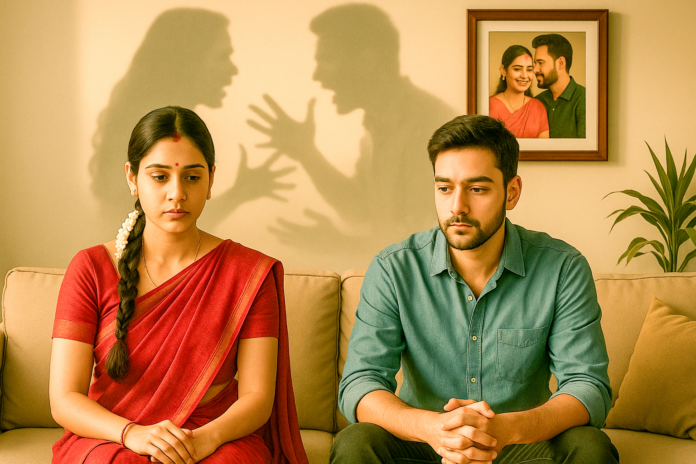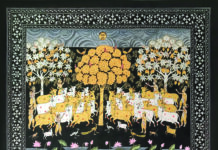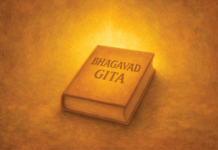Violent relationships reflect deep societal flaws—rushed marriages, lack of emotional education, and cultural silence turn love into suffering.
Every now and then, a disturbing news story grabs the nation’s attention – one that seems too extraordinarily gruesome to be real, yet involves seemingly ordinary people.
We would like to call such incidents as aberrations. Yet, truth be told, they are actually a reflection of something much more ubiquitous and disturbing: a more pervasive social and psychological deterioration that frequently goes unnoticed beneath the surface of lives that appear to be normal.
These are not stories of seasoned criminals. Most of the time, the individuals involved come from modest, middle-class backgrounds, have respectable jobs, and appear to lead normal lives. The question then becomes: how do these people end up being caught up in such darkness? What turns normal interpersonal relationships into arenas of hostility, oppression, or even violence?
The real issue isn’t limited to isolated individuals—it lies in the cultural and educational frameworks that shaped them. There is a fundamental lack of inner clarity, grounding, and wisdom in how we prepare people—especially the young—for love, responsibility, and life itself. If we want to understand the violent stories from intimate relationships that have started flowing in too regularly to be dismissed as freak occurrences, here are a few pointers:
Rethinking How We Understand Love
We often speak of love, surrender, and purity as lofty ideals, yet their essence remains unexplained and unrealised at home and in our education system. As a result, the youth remain unprepared to embody these values in life.
Too often, what we call love is shallow—driven by attraction or social convenience rather than self-awareness. Marriages are still arranged based on dowries, caste, income, or skin tone. When relationships are built on social calculations rather than authentic connections, resentment tends to build—and sometimes, it spills over into tragedy or even violence.
Many girls grow up in environments where interaction with boys is heavily restricted, shaped by long-standing social norms and taboos. Then they are suddenly expected to enter into marriage, usually without the necessary emotional readiness or a true grasp of what it entails. It’s a sudden change that may make them feel disoriented or overpowered. It’s no surprise that internal turmoil develops in the domain of forcibly arranged identities; it may do so subtly at times or, in rare but tragic instances, erupt into physical violence.
It’s common to hear parents say, “Got my daughter married—one responsibility less.” Such casual remarks reflect a deeper mindset—marriage is often viewed not as a meeting in love, but as a duty or a burden to offload. It is deeply saddening to witness such incidents in a country often referred to as the ‘land of love’, the home of devotion. But devotion without freedom becomes a hollow ritual. And in so many of our relationships today, freedom is conspicuously absent.
The Chains of Caste, Social Divides, and the Fear to Speak Freely
The social structures that shape marriage and love are still very traditional, despite our claims to be modern. Fear of parental rejection often silences personal choice, particularly in caste or community relationships.
A pattern of silent, coerced conformity ensues. Furthermore, conflicts that unavoidably arise within these forced arrangements have the potential to turn tragic. However, society reacts with shock, treating these occurrences as isolated anomalies rather than obvious signs of a systemic breakdown.
The Culture of Rushed Marriages
A primary cause of such disturbing incidents is the haste with which society pushes unprepared youth—especially in traditional settings—into lifelong marriages. Romanticized as “eternal unions,” these bonds are assumed to bring love followed with adjustment, though no one explains how or on what basis.
Most people enter marriage unprepared—still in their early twenties, with only a moderate level of education, and too immature to handle its demands—but this hurried culture of marriage ignores this fact. It is expected of young women in particular to get married and have children almost immediately, often before they are emotionally prepared.
When someone is emotionally fragile, even small conflicts can spiral—sometimes into violence, but more often into quiet struggles like anxiety or depression. Sadly, we’ve become used to these silent forms of suffering.
When relationships are built on misunderstanding and repression, it is no surprise that many of them falter. What becomes crucial then is whether those facing difficulties have anywhere to turn for guidance.
The Absence of Marital Support
If a couple finds themselves unable to connect, they often have nowhere to turn for guidance—at least not without the fear of blame or social scrutiny. In such isolation, irrational decisions become far more likely. In many towns, just admitting there’s trouble in a marriage is seen as shameful. So, problems are slowly buried until they explode. Relatives often say they saw no signs—when in truth, most people stay silent out of fear, not because they weren’t struggling.
Families may appear stable on the outside, but inside, hearts are breaking. India is the heart disease capital of the world. Among the various reasons, familial stress too is counted as one. Enduring in silence isn’t strength—it’s a sign that something’s missing in our society’s ability to reflect at itself.
A healthy society does not glorify suffering — It confronts it with clarity. It creates an environment where young people are encouraged to understand life before being asked to share it with someone else. It actively builds support structures and accessible avenues of care in times of difficulty. Some of this silent heartache also comes from the unspoken rules that culture and community quietly impose on us.
A Difficult Exit
We pride ourselves on our low divorce rates, without examining our low happiness index. Even when someone recognizes that a relationship is causing deep emotional harm, exiting it is rarely straightforward. Cultural and familial expectations make leaving seem shameful—more so for women, who often face the brunt of social scrutiny. In such a setup, even seeking help becomes a taboo.
Many continue in painful relationships simply because there appears to be no dignified, supported way out. Just admitting there’s trouble is seen as weakness or betrayal. The family and society prefer silent submission over open confrontation, even when the cost is someone’s mental and emotional well-being.
When irrational decisions occur in isolation, they are often the result of a long and silent build-up. So many spend their lives in loveless, painful relationships, quietly bearing the weight of social expectations. That, too, is a kind of violence—and it reveals how much we’ve overlooked in our upbringing and inner education.
A conscious culture must not only make room for guidance within relationships but also for exits from them—when necessary—with dignity and support. Staying should never be the only “respectable” option. Sometimes, it is walking away that takes the greatest strength.
Preventing Tragedy Begins with a Conscious Society
To prevent such incidents, we must rethink our understanding of love and marriage. Children must learn that love goes beyond attraction or duty—and those ready to enter relationships with such clarity should feel free to express it, without fear or shame.
It’s just as important to create support systems—within families and communities—where people can talk openly, without fear of being judged. We require a society in which it is not considered shameful to express uncertainty, or internal conflicts.
Until we build such a culture, these headlines will keep recurring—and many more tragedies will remain buried in silence. Outrage alone cannot break the cycle. Only a conscious society can—a society that not only prevents violence but nurtures self-awareness, courage, and inner clarity in every home.
Let India return to her deepest moorings— where love is rooted in self-knowledge and relationships are anchored in freedom.
(Acharya Prashant, a Vedanta exegete and philosopher, is an author, columnist, and founder of the PrashantAdvait Foundation. He is a recipient of Most Influential Vegan Award by PETA, the OCND Award from the IIT Delhi Alumni Association, and the Most Impactful Environmentalist Award by the Green Society of India)








